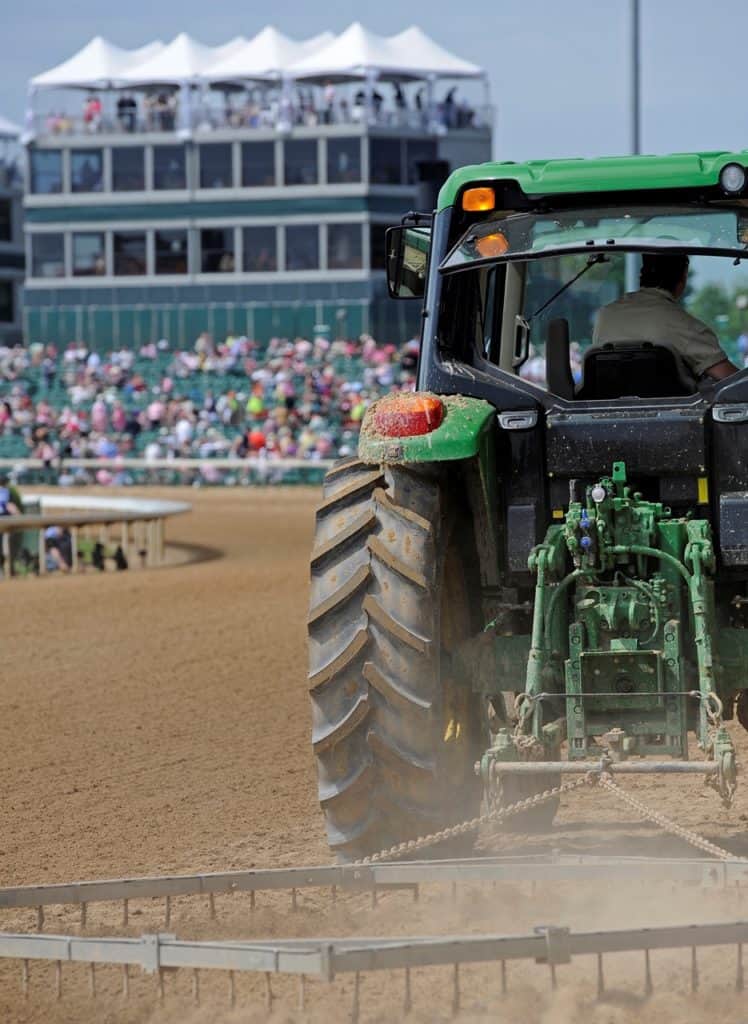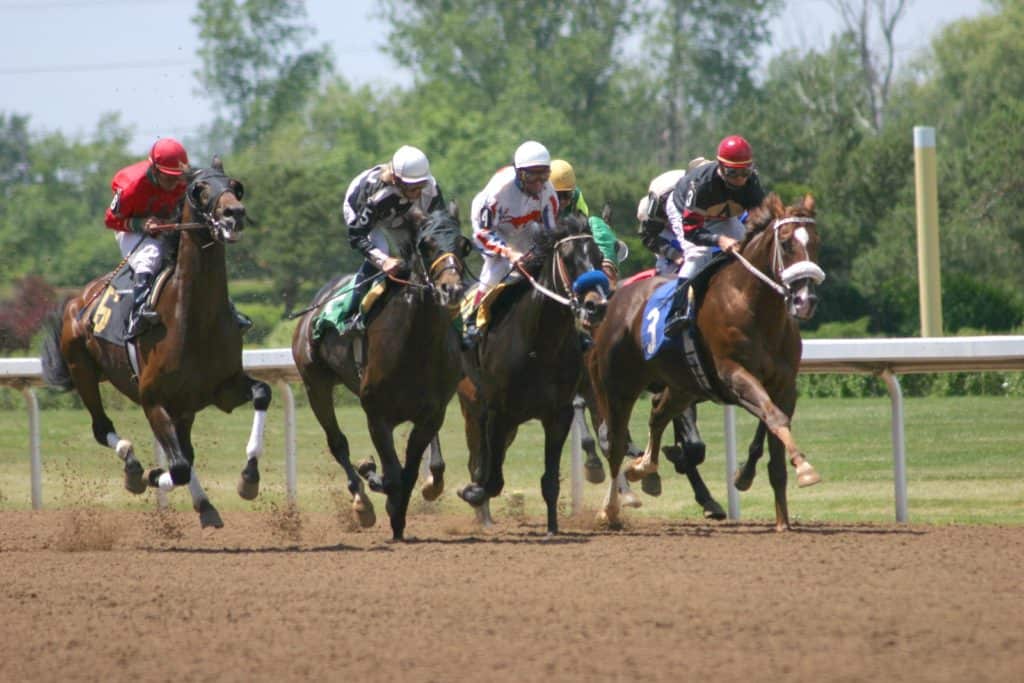
Information Collection Key in Maintaining Track Surfaces
Presenters discussed how improved information collection is helping to improve racetrack surfaces throughout the United States.

Presenters discussed how improved information collection is helping to improve racetrack surfaces throughout the United States.
The operators of a Mississippi horse sanctuary are hoping the offer of a cash reward will lead them to those responsible for shooting a rescued horse.

Multiple racing jurisdictions have adopted all or parts of the National Uniform Medication Program, with others expected to be on board by the end of this year.
A ruptured aneurysm is being blamed for a horse’s death during a training session for the chuckwagon races at the Calgary Stampede currently underway in Alberta, Canada.

If research shows that Thoroughbreds and Warmbloods are more likely to have twin pregnancies, could this be in relation to the number of mares that receive injections to encourage ovulation?

Panelists discussed scenarios, ranging from whether the 21st century horse is too fragile, the possible effects of medications on whether horses start less now, and even possible economic decisions that have resulted in horses racing less.
An allegedly emaciated horse is receiving rehabilitative care while authorities seek whoever is responsible for abandoning the animal on an Oregon road.

A measure that allows veterinarians to legally carry controlled substances to farm call sites has been passed by the U.S. House of Representatives.

Panelists pushed for better communication and more transparency to help keep racehorses safe.

Of the 716 respondents, 203 people (28%) said they bring their horses into a barn before fireworks start.

Recently, a biomarker called SAA has become a buzzword, garnering attention from the equine veterinary community for its ability to indicate inflammation. So just what is SAA and why are so many veterinarians and researchers starting to analyze it?

As the North American Thoroughbred industry continues its quest to lower the catastrophic breakdown rate, it is actively pushing the need to identify at-risk racehorses, even if the effort makes stakeholders uncomfortable.

Veterinarian Doug Byars, DVM, Dipl. ACVIM, age 70, died the evening of July 7 at his Georgetown, Kentucky home.

There are some horse health conditions that remain difficult to treat. And diagnose. And study. One of those conditions is equine Lyme neuroborreliosis. Here’s what you need to know about this potentially deadly condition.
A Johnson County horse was euthanized after testing positive for equine infectious anemia (EIA) in late June.
Investigators are blaming hay bales stored in the barn for the blaze that killed two horses.
Stay on top of the most recent Horse Health news with
"*" indicates required fields